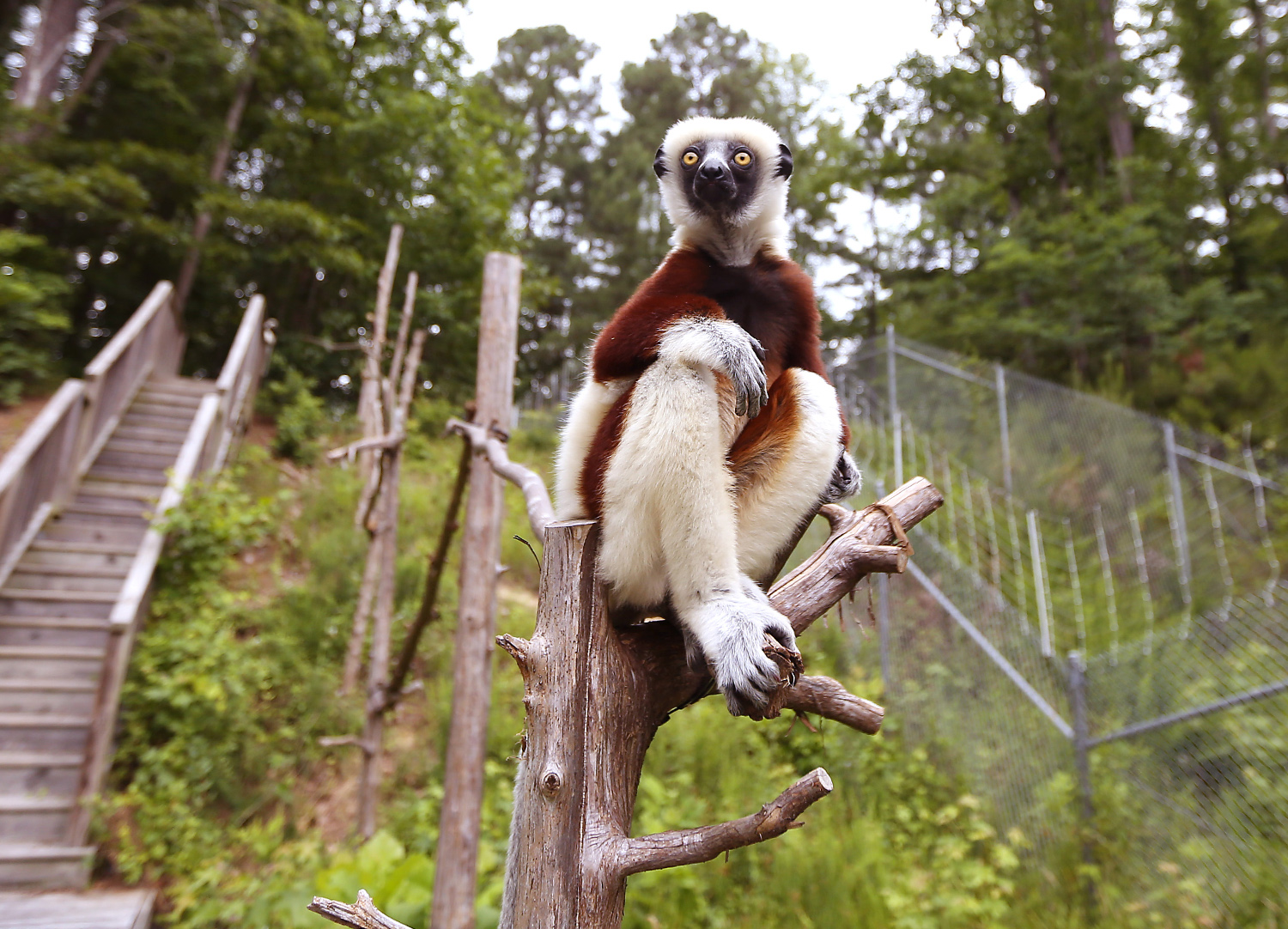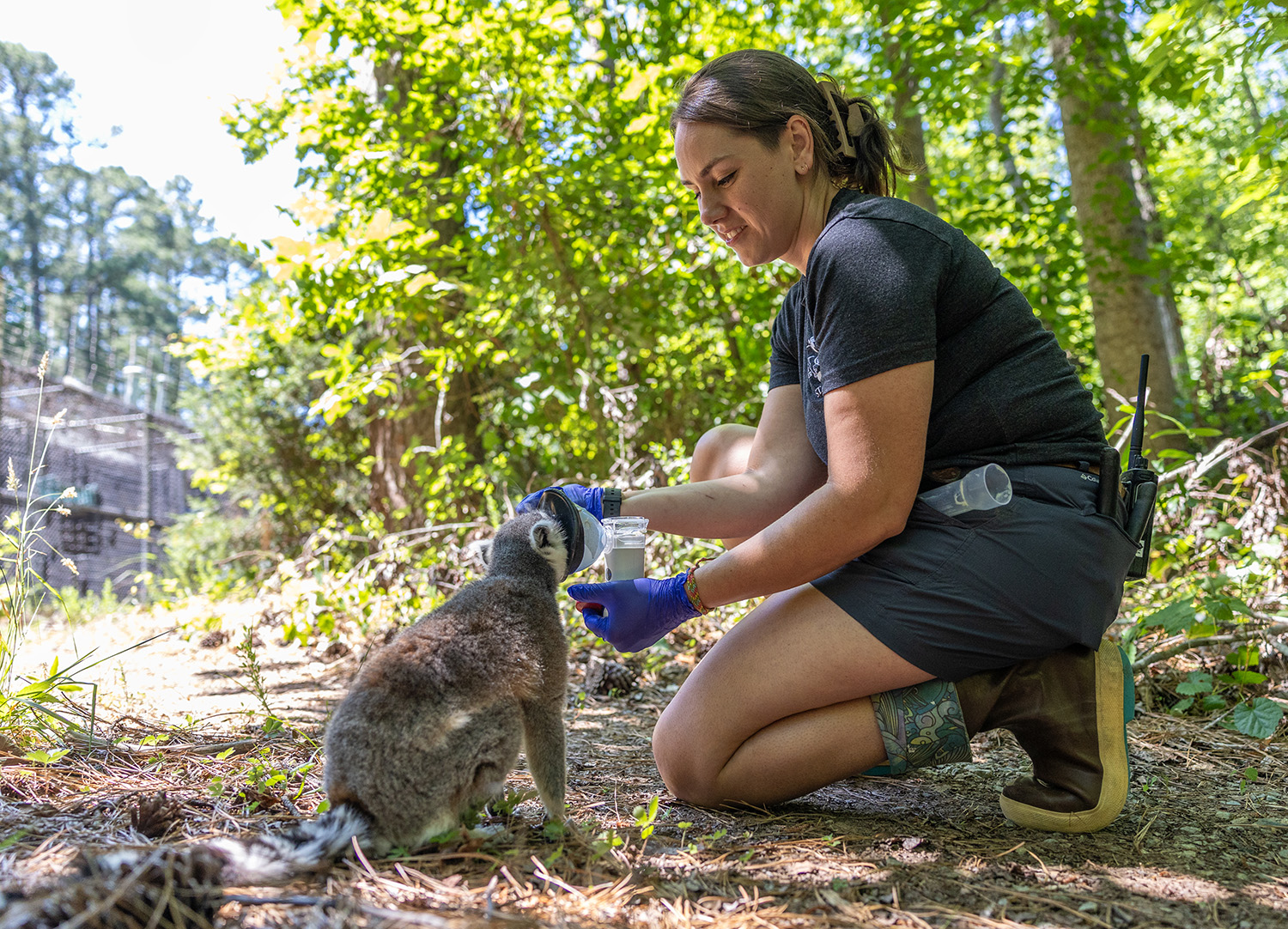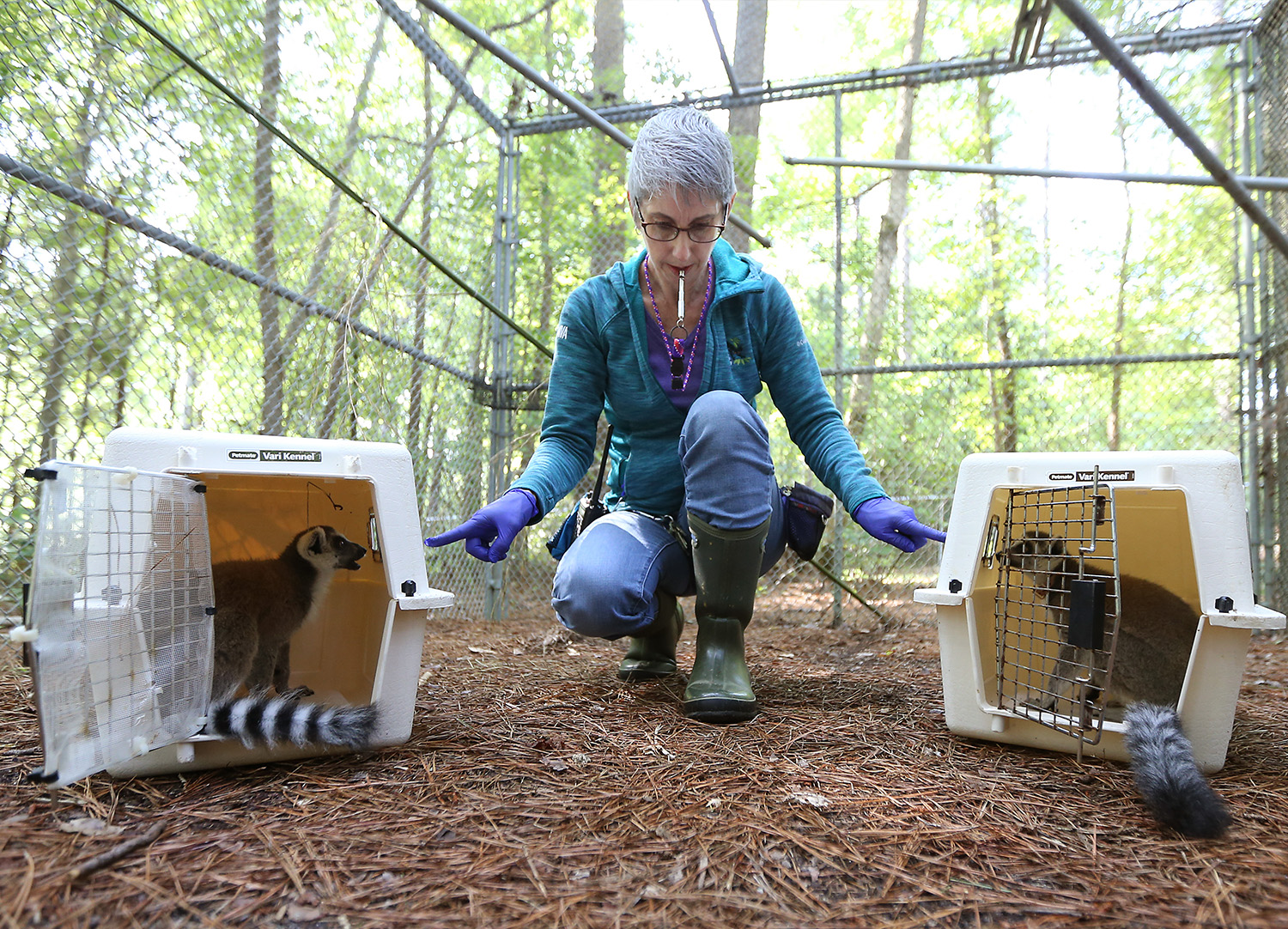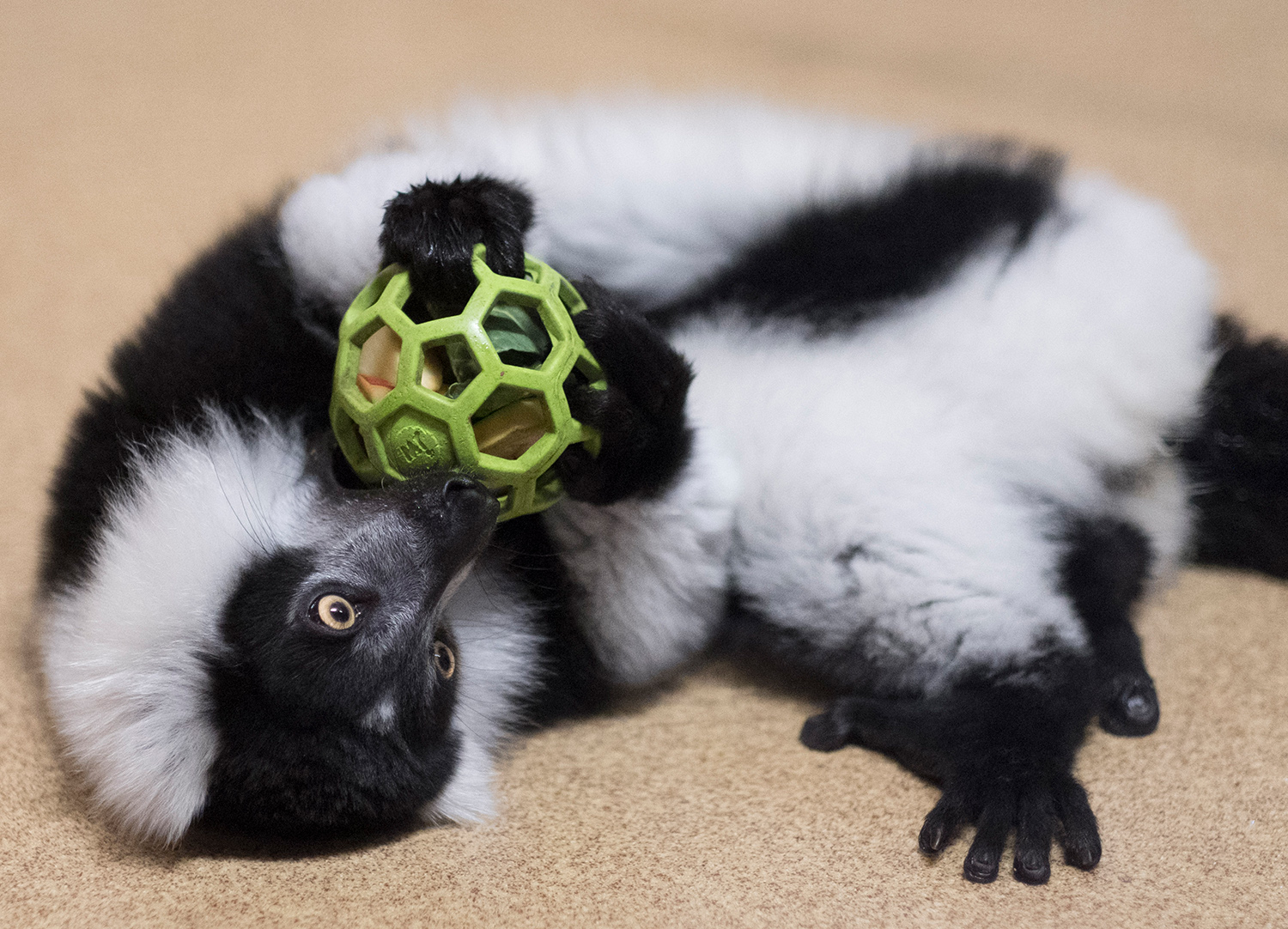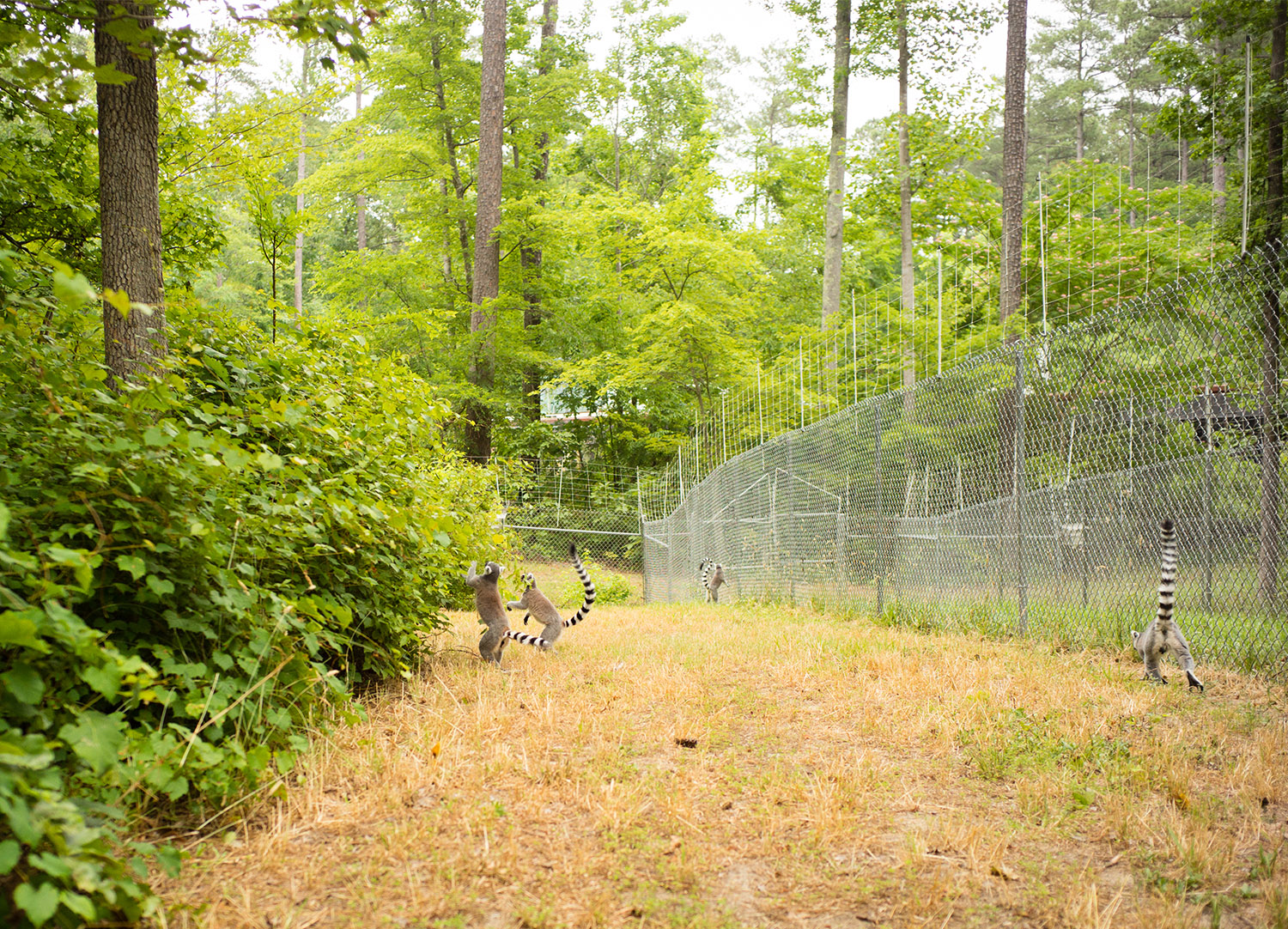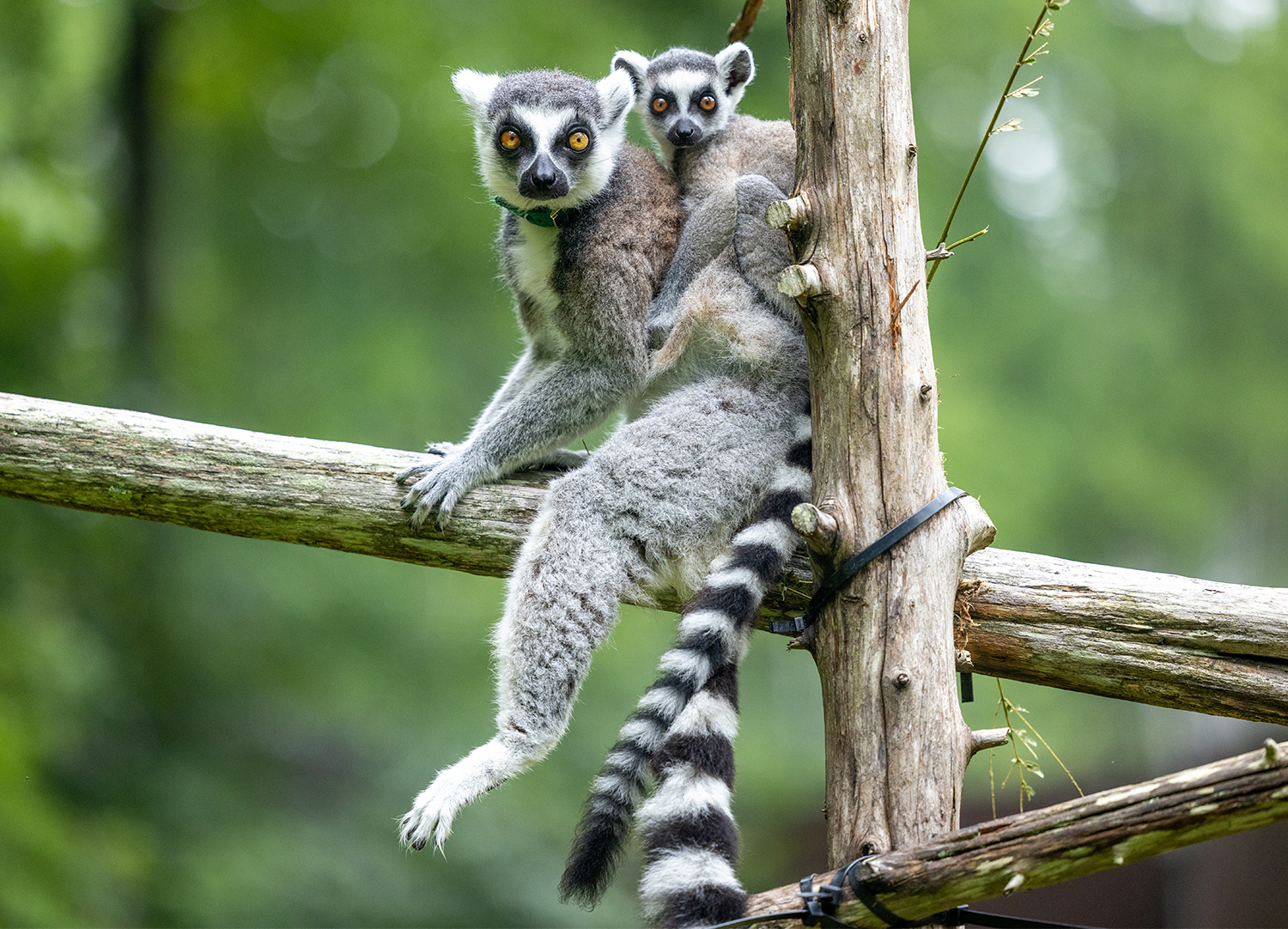As a member of the Association of Zoos and Aquariums (AZA), the Duke Lemur Center believes that the wellbeing of the animals in our care is our ethical responsibility and is foundational to our mission.
Animal wellbeing is a state of being comfortable, healthy, or happy. At the DLC, the wellbeing of the colony is our top organizational priority. We are committed to the physical, social, and behavioral wellbeing of each individual through all stages of his or her life and have, therefore, developed a proactive animal wellbeing program. We continuously pursue opportunities to advance animal wellbeing through discovery and application of animal welfare science.
Program Overview
Program Vision: Animal wellbeing. Every animal. Every day.
Program Mission: The DLC will provide the highest standards of animal care and wellbeing through multi-department collaborations, proactive discussions, and the application of evidence-based program decisions and revisions.
Framework: The DLC’s animal wellbeing program is based on the Five Domains Model, which is a science-based structure for assessing animal wellbeing. The five domains consist of Nutrition, Physical Environment, Health, Behavioral Interactions, and Mental State. Factors considered in the first four domains give rise to affects that are assessed in the fifth (mental) domain. Because an animal’s physical, mental, and emotional states may be dependent on one another and can vary from day to day, it is important to consider these states in combination with one another over time to provide an assessment of an animal’s overall wellbeing status. Aspects of animal wellbeing that are assessed daily include, but are not limited to, individual health, social dynamics, housing, species-specific behavior, and affective states.
Guiding Principles:
Maximize choice, control, and challenges for our animals
Ensure appropriate physical, social, cognitive complexity
Promote appropriate species-specific behavior
Provide comprehensive care that promotes physical, emotional, and social wellbeing
Support wellbeing tailored to individual needs through all cycles and life stages
Identify and maintain the highest standards of wellbeing for animals in our care
Encourage and support the development and implementation of research and practices which make the Duke Lemur Center an innovative leader in the field of animal wellbeing
Goals and Objectives
The goals of the Duke Lemur Center’s animal wellbeing program are as follows:
To establish daily operations that create as much time for mental health as physical health for each individual in the DLC colony
To develop staff expertise to successfully apply operant conditioning to create a culture of voluntary animal participation for the majority of husbandry and non-invasive research activities
To achieve the highest welfare standards for the animals in our care by creating holistic husbandry plans that consider natural history and incorporate the expertise and perspectives of science, husbandry, and veterinary staff members
To develop staff expertise to identify both positive and negative indicators of welfare and participate in a multi-dimensional assessment approach to create a cycle of continuous advancement in the wellbeing of each individual in the DLC colony
To identify, support, and conduct applied research aimed at improving the wellbeing of DLC’s colony as well as advancing the science and best practices of animal welfare more broadly
To incorporate animal wellbeing as a decision-making filter for all DLC events, activities, projects, and initiatives
To elevate the profile of the Center’s animal wellbeing program with staff, guests, the general public, and within the professional community
To increase the levels of staff and volunteer understanding of and proficiency in animal welfare science and best practices

